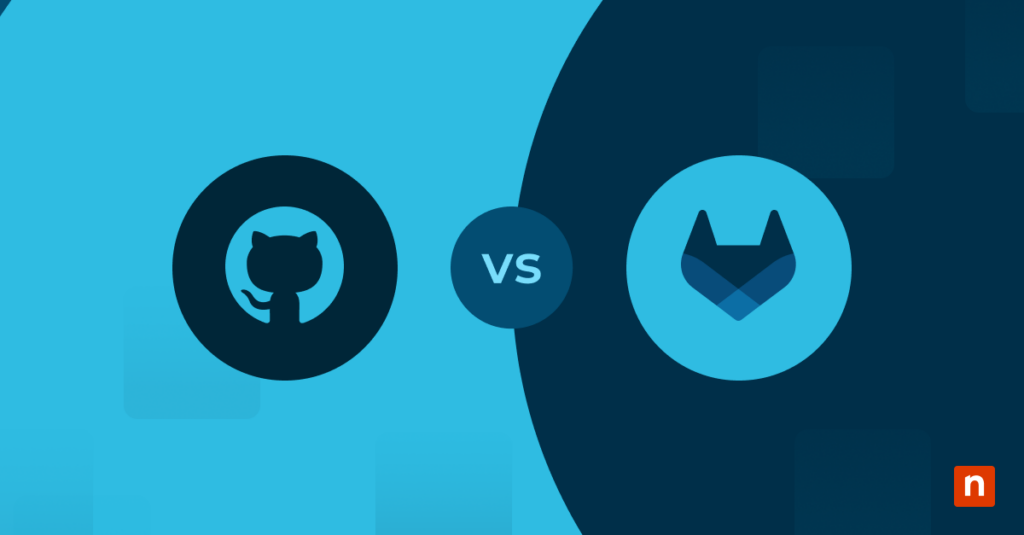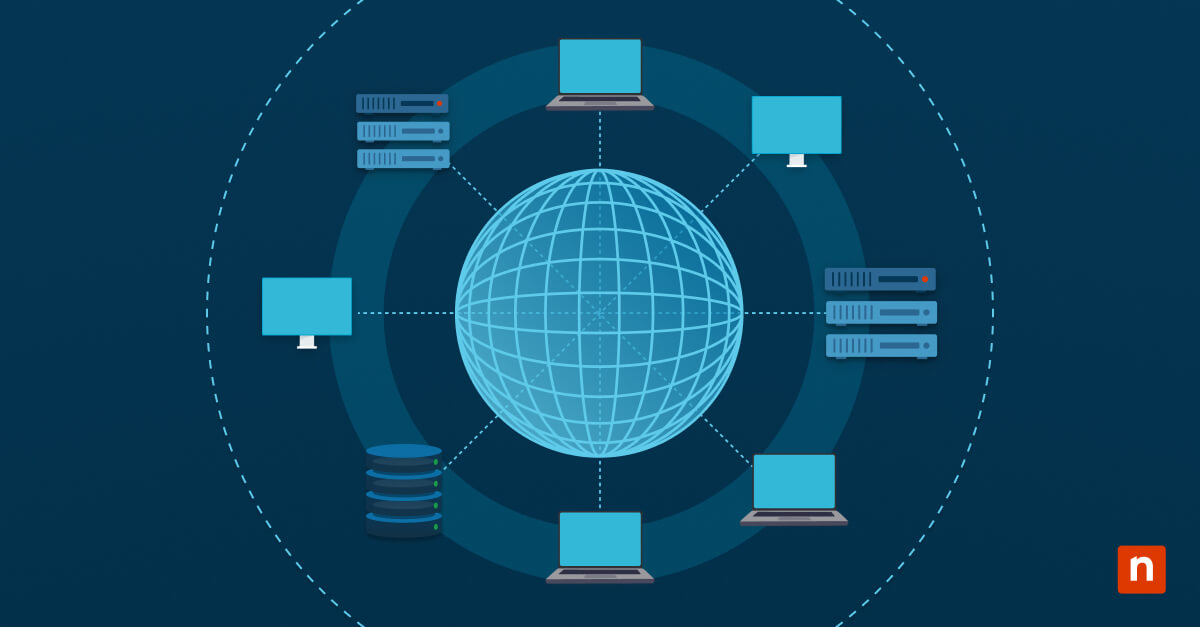Key Points
GitLab vs GitHub: Key differences and what you need to know
- Both GitLab and GitHub are leading web-based platforms built on Git that help developers manage source code, track changes, and collaborate across software development projects.
- GitLab offers an all-in-one DevOps platform with built-in continuous integration/continuous deployment (CI/CD), issue tracking, and self-hosting capabilities.
- GitHub provides a developer-friendly interface and a massive open-source community, with GitHub Actions delivering CI/CD and seamless integrations with popular tools.
- Choosing between GitLab and GitHub depends on project size, DevOps needs, integration preferences, security requirements, and budget.
Developers have many version control systems to choose from. Two popular platforms are GitLab and GitHub. Both of these platforms offer useful features that make them desirable tools for developers and software teams worldwide.
However, though these platforms are similar, they’re not identical. Before you commit to using one or the other, you should compare GitLab vs GitHub and determine which will be better for your project.
GitLab vs GitHub: what are the key differences?
Both platforms share many similarities and also have distinct differences that make them suitable for different use cases. When comparing GitLab vs GitHub, some key differences to consider are:
| GitLab | GitHub | |
| Hosting options | Cloud (GitLab.com) and fully supported self-hosting via Community & Enterprise Editions; open source option available | Cloud (GitHub.com) and self-hosting via GitHub Enterprise Server; no open source edition |
| Pricing | Offers a Free plan with basic features Premium: $29.00 USD per user/month (billed annually) Ultimate: may vary, requires users to contact Sales | Offers a Free plan with basic features Team: $4.00 USD per user/month Enterprise: $21.00 USD per user/month |
| CI/CD | Has a built-in and fully integrated CI/CD system that is native and robust | Has GitHub Actions, a native and flexible CI/CD system; also relies on external tools for full functionality |
| Security and compliance | Built-in SAST, DAST, and container scanning | Available via GitHub Advanced Security and third-party integrations |
| Community support | Medium-sized community, with a growing developer base | Large and active open-source community; helps support developers with the GitHub Sponsor program |
| AI assistant | GitLab Duo (early access) | GitHub Copilot |
Prefer visuals? See ‘GitLab vs GitHub: Which is the Better Version Control System?‘ explained clearly in this quick video.
Now that we have a quick overview of each platform’s key differences, let’s take a closer look at their respective features.
What is GitLab?
GitLab is a web-based platform that provides DevOps capabilities. It’s built on Git, an open-source distributed version control system. As a comprehensive software development platform, it offers a complete suite of tools that enables you to track changes, collaborate on code, and efficiently manage repositories.
Key Features:
- GitLab CI/CD: a built-in and fully integrated CI/CD system that offers automation for testing and deployment
- Self-hosting options: allow users full control over their data and infrastructure
- DevSecOps support: GitLab has native, built-in security tools such as SAST, DAST, and container scanning that help teams add security and compliance checks earlier in the development cycle.
- Comprehensive DevOps life cycle support: GitLab offers various features such as issue tracking, continuous integration, and deployment pipelines, making it a comprehensive solution for the entire software development lifecycle.
GitLab is available for free to individuals and teams of up to five collaborators. Its free plan includes the following:
- Source Code Management & CI/CD
- 5 licensed users
- 400 compute minutes per month
- 10 GiB storage
GitLab also offers a self-hosted option, which give organizations full control over their repositories and data. This is useful companies that prioritize privacy and security.
What is GitHub?
GitHub is another web-based hosting service for version control that was also built on the open source code management system Git. Acquired by Microsoft in 2018, GitHub continues to have a large community of developers and is one of the largest code hosts in the world.
Key Features:
- GitHub Actions: GitHub’s native CI/CD pipelines for automating builds, testing, and deployment in the platform using YAML-based configurations
- GitHub Copilot: an AI coding assistant that allows developers to create code more efficiently
- Collaborative code hosting: excellent version control features such as pull requests, code reviews, and branch protection
- Third-party integrations: strong integration with popular development tools and services, including continuous integration and deployment tools, project management platforms, and code editors
- Open-source ecosystem: highly collaborative environment, ideal for community-driven projects
GitHub provides a platform for developers to collaborate on projects, share code, and contribute to open-source software. Its intuitive user interface makes it easy to manage repositories, track changes, and collaborate with others.
Businesses with compliance issues benefit from GitHub Enterprise and its standardized code storage. Moreover, GitHub provides extensive documentation and support, ensuring that developers can quickly get up to speed with the platform.
Which is better: GitLab or GitHub?
When comparing GitLab vs GitHub to find the better version control system, you’ll first need to examine your project’s specific requirements and preferences. Both platforms have strengths and weaknesses, and what works for one project might not work for another. For example, GitLab offers a built-in CI/CD system, DevSecOps support, self-hosting capabilities, and a comprehensive set of tools for the development lifecycle. Meanwhile, GitHub excels in seamless integrations of services and third-party apps, open-source community building, and a user-friendly interface.
Some specific factors to consider when making your decision include:
- Project size: If you’re working on a small project or an open-source initiative, GitHub’s ease of use and strong community support might be a good fit. For larger projects or organizations that require more control over their repositories or data, GitLab’s self-hosted option and comprehensive feature set might be more suitable.
- Integration: Consider the tools and services you currently use or plan to use in your development workflow. GitHub’s extensive integration options might make it a more seamless fit with your existing tools. However, if you value an all-in-one solution with built-in CI/CD capabilities, GitLab might be the better choice.
- Pricing: Evaluate your budget and the costs of using GitHub vs GitLab. GitLab’s free and flexible pricing plans for its Ultimate edition make it an attractive option for individuals and small teams.. If you have a larger organization with specific requirements, GitHub’s pricing model might be more suitable.
- Community: If community involvement and contribution are important to you, GitHub might be a better choice. It has a vibrant community of developers makes it an excellent platform for open source projects and collaboration.
Recommendation: Use GitLab if…
- You need on-premise/self-managed control
- You want built-in security, CI/CD, and monitoring
- Your organization follows DevSecOps or strict compliance frameworks
Recommendation: Use GitHub if…
- You’re building open-source projects
- You want GitHub Copilot and Actions
- Your team uses tools like Azure, VS Code, or Teams that will benefit from integration
As you evaluate your specific needs and consider the pros and cons of GitHub vs GitLab, note that pricing and features can change. Be sure to consult each platform’s website before making a final decision on your version control system.
The last word on GitLab vs GitHub
Both platforms are powerful version control systems that have revolutionized the way developers collaborate and manage source code. The differences between GitHub vs GitLab come down to their features compared to your specific requirements, project size, integration needs, and budget.
Managing software development in your organization is a complex combination of version control, change management, auditing, compliance, patch management, and more. You can stay on top of all the moving parts by adopting Software Configuration Management (SCM) and employing NinjaOne’s Automated Software Deployment Tool. This tool integrates with various SCM tools and streamlines software delivery, allowing you to navigate software development and deployment with confidence. Learn more about NinjaOne’s Automated Software Deployment Tool here.








